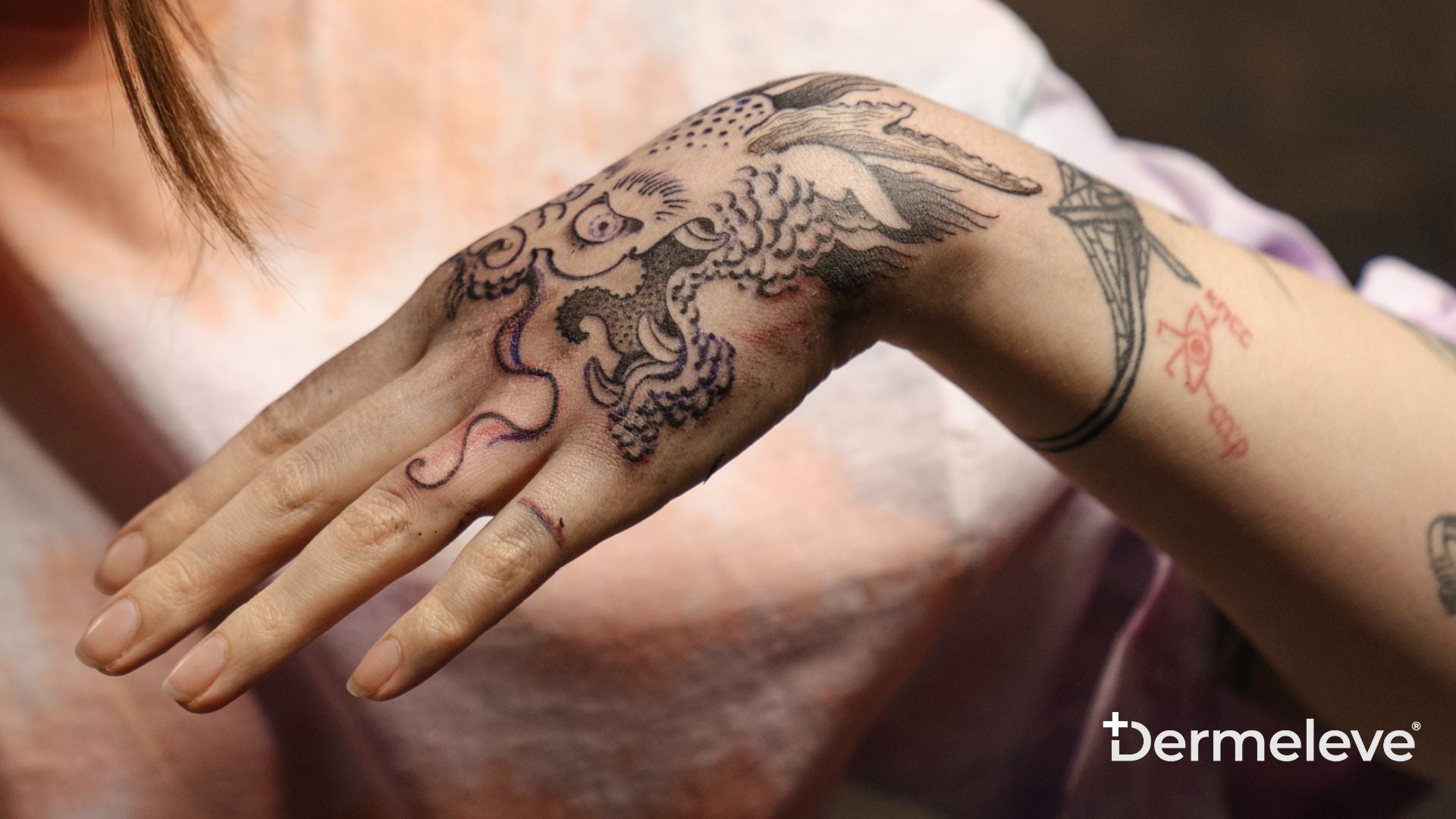An itchy and raised tattoo is a normal part of the healing process. As the skin heals from the tattoo ink and the scab starts to flake off, itching occurs due to inflammation. This sensation usually lasts for 2-4 weeks but can persist for up to 8 weeks. In some cases, older tattoos can also experience flare-ups and itching. However, scratching the tattoo can lead to secondary infections, so it’s important to resist the urge to scratch.
Table of Contents
ToggleCauses of Tattoo Itching
The Healing Process
During the healing process, itching is a common occurrence. The skin may become dry and tight, leading to itchiness.
Skin Conditions
People with preexisting skin conditions like eczema or psoriasis may experience mild itching after getting a tattoo. Conditions like rosacea can also be exacerbated by the tattooing process. Those with sarcoidosis may need to take immunosuppressants to control itching.
Allergic Reactions
In rare cases, itching can be caused by an allergic reaction to the tattoo ink or pigment. This can result in an itchy rash, hives, or a general feeling of being unwell. If you experience an allergic reaction, it is important to seek medical attention immediately. Severe allergic reactions may require tattoo removal through laser treatments.
Remedies for Soothing Tattoo Itching
To soothe tattoo itchiness, avoid scratching the tattoo and try these remedies:
- Apply a cold compress or non-steroidal anti-itch cream to the area until the tattoo has healed.
- Moisten the skin with a fragrance-free and hypoallergenic lotion or ointment specifically formulated for tattoos.
- For older tattoos, use an oatmeal-based lotion or one with cocoa butter.
How to Identify and Treat an Infected Tattoo
If you suspect an infected tattoo, look out for these signs:
- Redness
- Swelling
- Pain
- Itching
- Pus or fluid drainage
- Fever
Seeking medical attention promptly is crucial to prevent serious health complications associated with tattoo infections. To avoid infections, choose a reputable tattoo artist or facility that follows proper sterilization practices. Follow all aftercare instructions recommended by the tattoo artist at each stage of the healing process.
Preventing Itchy Tattoos
Proper hydration and a healthy diet can help prevent dry and itchy skin. By keeping your skin hydrated, you can reduce the likelihood of developing itchiness.
Frequently Asked Questions
Q: Why does my tattoo itch?
A: Itching is a normal part of the healing process for a new tattoo. As the skin heals, it may become dry and tight, causing itching. Additionally, your body recognizes the tattoo as a foreign object, releasing histamine, which can cause itching.
Q: How can I soothe the itching?
A: Gently wash the area with mild soap and warm water, then apply a thin layer of fragrance-free and hypoallergenic lotion or ointment to keep the skin moisturized. Avoid scratching or picking at the tattoo.
Q: Can I use any lotion on my itchy and raised tattoo?
A: It is best to use a lotion specifically designed for tattoo aftercare. Choose a fragrance-free and hypoallergenic lotion to avoid potential irritation or allergic reactions. Check the ingredients and select a product suitable for sensitive skin.
Q: How long does the itching last?
A: The duration of itching can vary, but it is typically a temporary side effect of the healing process. It usually starts a few days after getting a tattoo and can persist for approximately two weeks. As the tattoo heals, the itching will gradually subside.
Q: What are the causes of itching in a tattoo?
A: Dryness of the skin is one of the most common reasons for tattoo-related itching. Allergic reactions to tattoo ink or aftercare products can also cause itching. Additionally, the body’s natural response to a tattoo as a foreign substance contributes to complications.
Q: Should I see a doctor if the itching persists?
A: If the itching is severe, persistent, or accompanied by intense redness, swelling, or discharge, consult a dermatologist. They can evaluate your tattoo and provide appropriate medical advice or treatment if necessary.
Q: How can I get relief from the itching?
A: To alleviate itching, apply a cold compress or ice pack on the affected area for brief intervals. Over-the-counter antihistamines may help relieve the itch. Hydrocortisone cream, under the supervision of a healthcare professional, can also provide relief.
Q: Is it normal for the itching to spread beyond the tattooed area?
A: It is not uncommon for itching to spread slightly beyond the tattooed area due to the body’s immune response and histamine release. However, if the itching spreads significantly or persists for an extended period, seek medical advice.
Q: Can sun exposure make the itching worse?
A: Yes, sun exposure can aggravate the itching and overall healing process of a tattoo. UV rays can cause further skin irritation and dryness. Protect your tattoo from direct sunlight during the healing period. Cover it with clothing or use a high SPF sunscreen.
Q: When should I be concerned about the itching?
A: Mild itching is commonly experienced during the healing process. However, be vigilant for signs of complications. If the itching becomes severe, accompanied by intense pain, unusual discharge, prolonged redness, or suspected infection, seek medical attention.
Conclusion
Itchy tattoos are a normal part of the healing process, but it’s important to resist the urge to scratch. By following proper aftercare instructions and using soothing remedies, you can alleviate the itchiness. Remember, if you suspect an infection or experience severe symptoms, consult a doctor or tattoo artist for appropriate medical advice. For immediate and long-lasting relief, consider using Dermeleve®, the anti-itch solution. Soothe your tattoo and enjoy your new ink without the discomfort of itching.
To learn more, visit the TKTX Numbing Cream Store for high-quality tattoo and TKTX Numbing Cream products.








